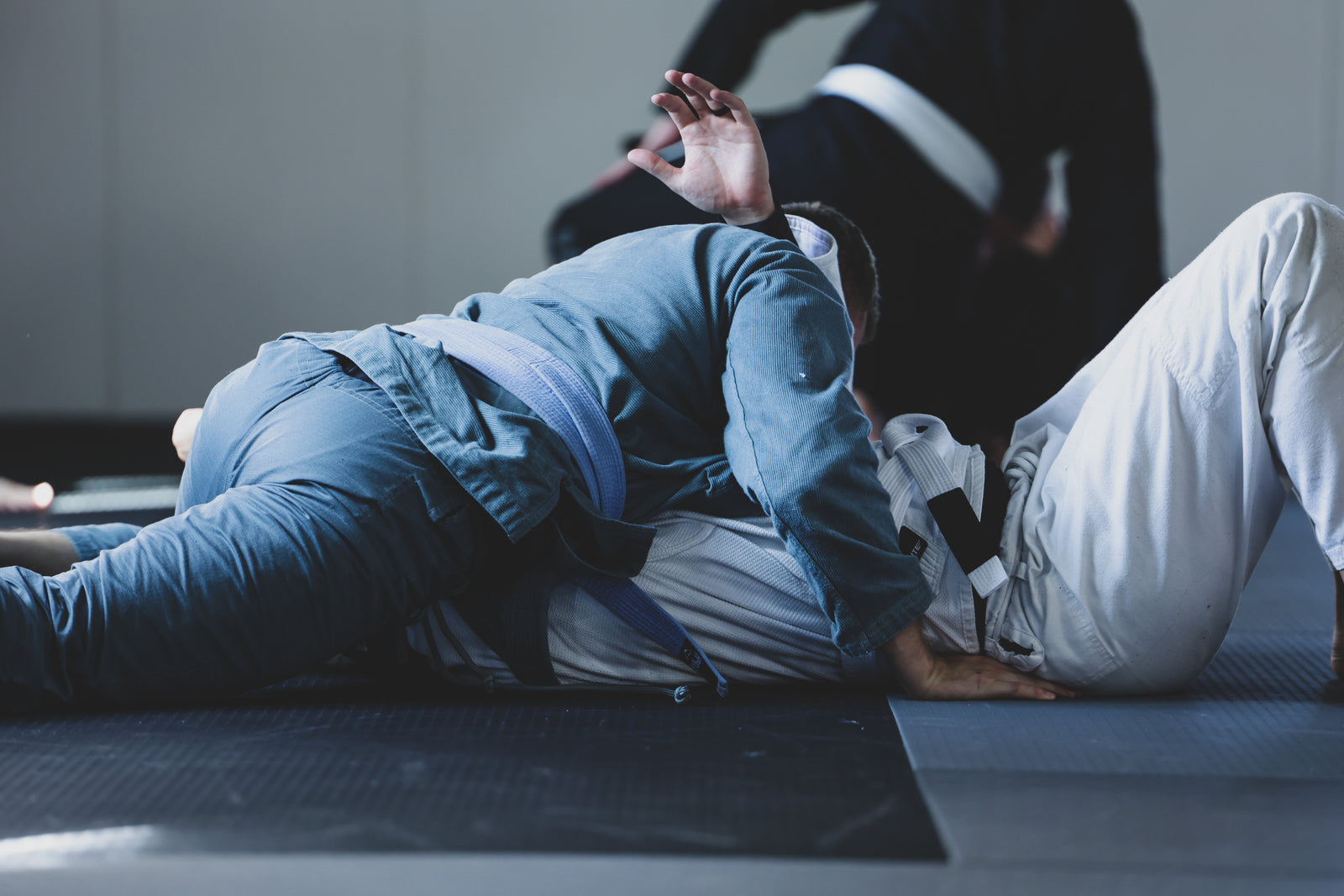Common Jiu Jitsu Training Mistakes & How to Fix Them

As you start your Jiu Jitsu journey, it's important to be aware of some of the common pitfalls that can hinder your progress. Here's a guide to help you avoid common mistakes so you can continue enhancing your skills.
Common Mistakes:
1. Neglecting the Basics
- Importance of Foundations: Many beginners are tempted to jump into advanced techniques, neglecting the fundamental positions and movements. Mastery of basics like proper posture, balance, and basic submissions is crucial for long-term success.
- Our Advice: Focus on learning and refining fundamental techniques before moving to more complex moves.
2. Over-Reliance on Strength
- Technique Over Power: Jiu Jitsu is often called the “gentle art” because it emphasizes technique over brute strength. Beginners sometimes rely too much on physical strength, which is not only counterproductive, but also exhausting.
- Our Advice: Focus on concepts and understand the principles behind each technique. Don't just learn how techniques work, but understand why they work.
3. Ignoring Defense
- Defensive Skills: A common beginner mistake is focusing solely on offensive techniques. However, a strong defense is essential in Jiu Jitsu.
- Our Advice: As a beginner, start by prioritizing defense. Learn how to escape from common positions and defend against submissions. This will make you a better grappler over the long term.
4. Not Tapping Out
- Ego and Safety: Out of pride, some beginners resist tapping out, which can lead to injuries.
- Our Advice: Remember, tapping out is a learning process. It’s better to tap out and train another day than to sustain an injury due to your own ego.
5. Skipping Warm-Ups and Stretching
- Physical Preparation: Neglecting proper warm-ups and stretching can lead to injuries.
- Our Advice: Always take time for a thorough warm-up and stretching session to prepare your body for the rigors of training.
6. Poor Hygiene
- Mat Etiquette: Jiu Jitsu involves close physical contact, making hygiene extremely important.
- Our Advice: Maintain good personal hygiene, keep your training gear clean, and be mindful of your health and the health of your training partners.
7. Not Asking Questions
- Learning Attitude: Some beginners hesitate to ask questions, either out of shyness or fear of seeming ignorant.
- Our Advice: Don't be shy. Asking questions is a key part of the learning process. Your instructors and higher belts are usually happy to spend time answering your questions and breaking down techniques.
8. Not Reflecting on Mistakes
- Self-Analysis: After training sessions or competitions, beginners often overlook the importance of reflecting on their performance.
- Our Advice: Take time to analyze what went well and what didn’t. This reflection is crucial for improvement.
9. Irregular Training
- Consistency is Key: Progress in Jiu Jitsu requires regular and consistent practice.
- Our Advice: Set a realistic training schedule and stick to it. Consistency beats intensity in the long run. Make it your goal to train a minimum of two days per week.
10. Forgetting the Mental Game
- Psychological Aspect: Jiu Jitsu is not just physical; it’s also a mental game.
- Our Advice: Work on mental toughness, stress management, and visualization techniques. You can do this through positional training, where you start from bad positions and work your way out of them. This helps you learn to be comfortable being uncomfortable.
Avoiding these common mistakes can significantly enhance your training. Remember, Jiu Jitsu is not just about physical ability but also about mental resilience, discipline, and continuous learning. Embrace the grind, and enjoy the journey. OSS



